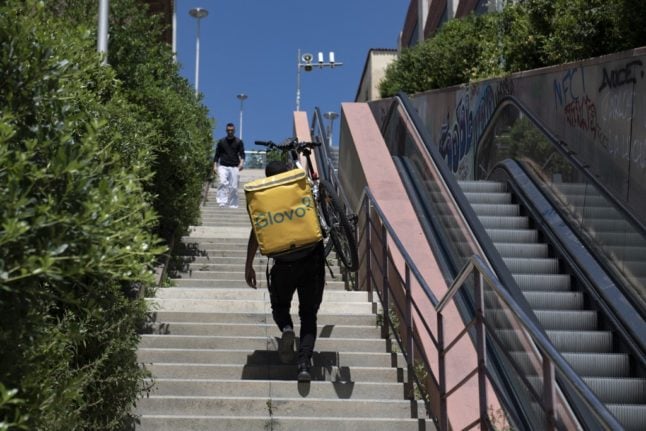Last week, the Spanish government announced it would extend labour benefits to hundreds of thousands of domestic workers, meaning they can no longer be dismissed without justification and can claim unemployment benefits.
The reform followed the European Court of Justice’s February ruling which found that the legislation which excluded domestic workers from unemployment benefits, who are “almost exclusively women”, was “contrary to EU law”.
The decree will affect some 600,000 people working in Spain, according to Spain’s top trade union CCOO , who will begin paying national insurance contributions from October 1st.
So what does this mean for people hiring domestic workers? Here’s what you need to know.
How much should I be paying a domestic worker?
The salary of a domestic worker or cleaner can no longer be lower than the minimum wage (Salario Mínimo Interprofesional), which is currently at €1,000 gross per month for full time work in 14 salary payments, or €7,29/hour.
You will have to cover their social security payments as their employer, which for full-time work (8 hours a day, 40 a week) will now be €324.
You can fill out this form on the Social Security’s website to calculate how much you should be paying according to your situation.
Keep in mind that you can also claim tax deductions such as for large families (45 percent) or based on the employer’s income (20 percent or higher).
What are the social security responsibilities of employers?
It will be your responsibility as an employer to ensure that your domestic worker or cleaner is registered in Spain’s social security system (the alta process), although if the domestic worker works less than 60 hours a month at the employer’s home it can be agreed that the employee handles this process.
To carry out the alta with the social security system, the employer will first have to get a Código de Cuenta de Cotización or C.C.C, a contribution account code, which you can get here.
Then for the worker’s registration, the employer will have to fill in this form, or if it’s the employee it’s this form that has to filled out.
What happens if there’s no written contract?
You should draft a work contract which both parties sign but in the absence of of this, it will be presumed that the contract is indefinite. The same rights and obligations will apply to this type of agreement, both to the worker and the employer.
The only work agreements that are exempt from the need for a contract are those that do not last more than four weeks. It’s also legal to agree to a trial period of up to two months before the contract becomes official.
The employee is also entitled to receive relevant information about their working conditions, whatever the duration of the agreement.
If I declare bankruptcy and can’t keep hiring a domestic worker, what happens to their compensation?
Domestic workers will have the right to contribute for unemployment and the Fondo de Garantía Salarial (Fogasa), the Salary Guarantee Fund. The latter takes care of the payment of debts from employers towards employees when they cannot pay them themselves because of declared insolvency or when the company is in the process of bankruptcy.
Can I fire a domestic worker?
You can fire a domestic worker as long as you provide a good enough reason to end the contract, and it must be done in written format. In this way, their rights are being brought in line with the rest of the country’s contract workers and protects them from losing their job without reason.
Some of the reasons for ending the work relationship include a lack of trust for a justified cause (for example theft by the domestic worker), a large increase in the expenses or a steep drop in income for the employer.
Keep in mind that employers will have to pay severance pay if the lay-off does not come as a result of disciplinary action, equal to 12 work days for every year worked, as well as any pending holiday leave or unpaid extra hours. If this isn’t done, the employee can claim a severance pay equal to 20 days of work.



 Please whitelist us to continue reading.
Please whitelist us to continue reading.
Member comments